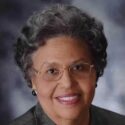 A new study by scholars at Cornell University in Ithaca, New York, finds that prosecutors ask prospective jurors different questions depending on their race, gender, or ethnicity.
A new study by scholars at Cornell University in Ithaca, New York, finds that prosecutors ask prospective jurors different questions depending on their race, gender, or ethnicity.
The researchers used natural language processing (NLP) tools to analyze transcripts from 17 South Carolina capital cases to determine whether NLP software could identify signs of disparate questioning. Their dataset included over 26,000 questions asked to prospective jurors by judges, defense attorneys, and prosecutors. The researchers examined not only the number of questions posed to potential Black, White, male, and female jurors, but also the topics covered, the complexity of each question, and the parts of speech used.
The analysis revealed significant differences in the length, complexity, and tone of the questions prosecutors posed to potential African- American jurors versus those posed to potential White jurors, indicating that they were likely attempting to influence their responses. The questions posed by the defense and the judges revealed no such racial disparities.
The study also uncovered evidence that prosecutors had attempted to exclude Black individuals based on their stances on the death penalty. Compared to White potential jurors, Black potential jurors were asked more explicit and graphic questions about execution methods.
The authors conclude that “the natural language processing software used in this study could provide attorneys challenging the use of peremptory challenges on appeal as being based on race or gender discrimination with evidence relevant to the issue of disparate questioning, which is often a pretext for purposeful discrimination. It could also potentially be used at trial since the analysis can be conducted almost instantaneously. Using it at either stage of the proceedings could be a powerful tool in achieving the goal of having more diverse juries in criminal cases, especially where the death penalty is a potential punishment.”
The full study, “Quantifying Disparate Questioning of Black and White Jurors in Capital Jury Selection,” was published in the Journal of Empirical Legal Studies. It may be accessed here.








